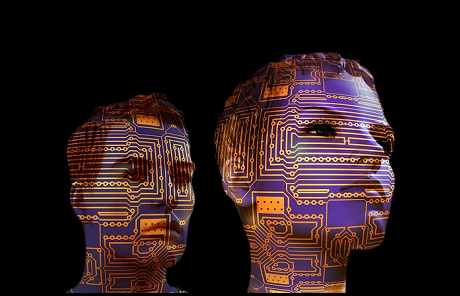
Artificial Intelligence and the future of law firms
- December 11, 2017
What exactly is Artificial Intelligence?
Lawyers have been making good use of LegalTech – software which allows them to do their work in a way which is more efficient and cost-effective – for some years now. A number of repetitive, labour-intensive manual processes such as reviewing documents for relevant information can now be done through automation, which enables professionals to devote more time to strategic work. But the most pioneering strand of this technology is Artificial Intelligence (AI) – software that has the capability to perform tasks that normally require human intelligence. When this kind of technology is used, it promises to be faster and more accurate than a human. In a profession where attention to detail is everything and mistakes can be costly, it pays to be aware of what AI can offer.
How law firms are currently benefitting from AI
So, how is AI transforming the everyday practice of law? The most common way is during the process of document review. Once, routine tasks such as drafting contracts and analysing legal documents were often delegated to junior lawyers. Now AI can be used to proofread and intelligently detect errors such as inconsistencies and omissions far faster and more accurately than a human, which dramatically speeds up the preparation of complex documents.
AI is also expediting the process of research and improving its accuracy: cognitive intelligence applications such as Watson can, for example, search through case law and identify relevant information and patterns, then evaluate and summarise the results. This makes it a valuable tool to lawyers working on due diligence, investigations and compliance related tasks. Staff at Berwin Leighton Paisner, for example, use an AI system to extract and check data when they work on certain property disputes, in a process which now takes minutes rather than weeks.
There are also some examples of AI currently being used in ways which seem more in line with the futuristic, robotic visions depicted in science fiction. A number of firms have been experimenting with AI robotic lawyers -or ‘lawyerbots’ – which can be used to provide legal advice and answer questions over the internet. With development, this could certainly replace the ‘send a request form’ section of many firms’ websites. In addition, AI is being used to sift data to predict outcomes, one fascinating example being the algorithm created by Chicago-Kent College of Law professor Daniel Martin Katz. It predicted the outcomes of 7700 U.S. Supreme Court cases with 70 percent accuracy, making it more precise than the forecasts made by legal experts. As the technology develops, it seems reasonable to anticipate AI being used to review information in real time and conduct risk assessments in order to help deal with potential legal problems before they emerge – pre-empting litigation.
How law professionals will need to adapt
But what does this mean for the future of the legal profession? And will lawyers need new skills? Unfortunately, there isn’t any AI which makes predictions about that. However, we can assume that as more legal professionals come to recognise how useful AI is as a time- and money- saving diagnostic tool, the more they will use it to support their work. It is likely that lawyers, especially those at the junior end of the market who are often tasked with those time-consuming research and review processes, will be freed up to work on more cognitive tasks, necessitating a rethinking of how teams are structured, as well as the responsibilities allocated to individuals. It’s also worth remembering that AI is only accurate when applied correctly, so training in the use of the technology will be imperative.
Why lawyers needn’t fear being replaced by robots
All of this means that where AI was once a futuristic idea, it’s now viewed as something which can be used to complement existing technology and is likely to become as second nature to us as spell checks and predictive text are on our laptops and smartphones. It will always be a tool because it is unlikely to ever reach a human level of creativity and judgement that would allow us to see a court room of robots. And while the legal sector is still in the early stages of discovering the full potential of AI, firms wishing to be market leaders should take advantage of current and emerging technology.
What benefits can your law firm reap by adopting more AI software solutions?
Take a look at some of our other blogs to gain more insight into the legal sector


